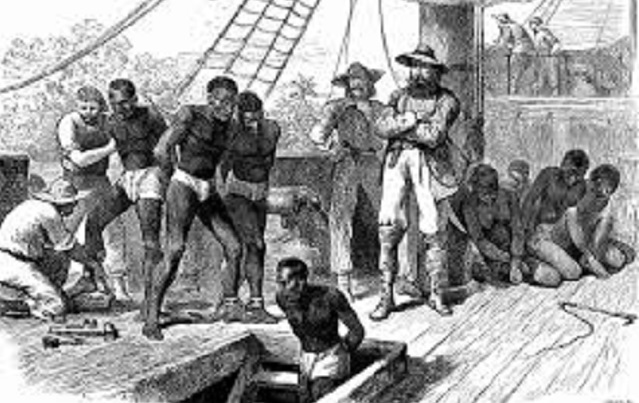
COMMENT | Gertrude Kamya Othieno | The arrival of mercantilism and capitalism in Africa not only disrupted traditional structures but also embedded the continent in a global economic system designed for its exploitation. For centuries, Africa was cast as a supplier of raw materials, a market for finished goods, and a source of cheap labour, while its people were denied the benefits of industrialisation and self-sufficiency. This dynamic, established during the colonial era, has persisted into the modern age, creating a cycle of dependency that continues to hinder Africa’s development.
The Foundations of Economic Exploitation
Under mercantilism, Africa’s resources became central to European wealth accumulation. The transatlantic slave trade commodified African labour, extracting millions of lives to fuel plantation economies in the Americas. Simultaneously, Africa’s gold, ivory, and other natural resources were siphoned off to European markets. The wealth generated by this trade laid the foundation for Europe’s industrial revolution, while Africa remained locked in poverty and underdevelopment.
Colonialism institutionalised this exploitation. European powers carved up the continent in the late 19th century, restructuring African economies to serve their industrial needs. Cash crops like cocoa, cotton, and coffee replaced subsistence farming, leaving African communities dependent on food imports. Mineral-rich regions, such as the Congo, were plundered for copper, rubber, and diamonds, with profits flowing outward while local populations were subjected to forced labour and environmental degradation
Post-Independence Dependency
When African nations gained independence in the mid-20th century, they inherited economies designed for extraction rather than self-sufficiency. This dependency was compounded by unequal trade relationships and financial systems dominated by former colonial powers.
One of the most insidious tools of this dependency has been foreign debt. African nations, eager to fund development projects, turned to international financial institutions like the International Monetary Fund (IMF) and the World Bank for loans. These loans often came with conditions that prioritised debt repayment over investment in social services, infrastructure, or industry. Structural Adjustment Programmes (SAPs), introduced in the 1980s, required African governments to privatise state enterprises, cut public spending, and liberalise trade, policies that devastated local economies and deepened inequality.
For example, in Zambia, SAP-mandated privatisation of the copper industry led to massive job losses and reduced government revenue, while the benefits accrued to foreign investors. Similarly, in Ghana, cuts to public spending under SAPs left healthcare and education systems in disarray, hindering long-term development.
The Unequal Global Trade System
Africa’s role in the global trade system remains largely unchanged. The continent continues to export raw materials at low prices while importing expensive finished goods. This imbalance ensures that the value generated by Africa’s resources is captured elsewhere, perpetuating economic dependency.
Even in industries where Africa has competitive advantages, such as agriculture, global policies work against the continent. European and American subsidies to their farmers make it difficult for African agricultural products to compete in international markets. For instance, cotton farmers in West Africa have long struggled against subsidised imports from the United States, which flood local markets and drive down prices.
The Resource Curse
Africa’s resource wealth, often seen as a blessing, has, in many cases, become a curse. Countries rich in oil, minerals, and other natural resources frequently experience what economists call the “resource curse”—a paradox where resource wealth leads to corruption, conflict, and economic instability rather than development.
Nigeria, one of Africa’s largest oil producers, exemplifies this dynamic. Despite generating billions in oil revenue, the country has struggled with poverty, inequality, and underinvestment in critical infrastructure. Much of the wealth generated by Nigeria’s oil industry has been siphoned off by multinational corporations and corrupt officials, leaving little for the people.
Breaking the Cycle of Dependency
Addressing Africa’s economic dependency requires a fundamental restructuring of its relationship with the global economy. African nations must prioritise value addition, ensuring that their resources are processed and refined locally rather than exported in raw form. Initiatives like the African Continental Free Trade Area (AfCFTA) offer an opportunity to strengthen regional trade and reduce reliance on external markets.
Reparations must also be part of the conversation. The wealth extracted from Africa during the mercantilist and colonial eras laid the foundation for Western industrialisation, and it is only just that these historical injustices be addressed. Debt cancellation, fair trade agreements, and investment in African industries are essential steps toward economic justice.
Toward Sovereignty
Africa’s journey toward economic sovereignty is not just about breaking free from dependency; it is about reclaiming control over its destiny. This requires bold leadership, grassroots mobilisation, and a commitment to policies that prioritise the well-being of African people over the demands of foreign powers.
In the next essay, we will explore a specific battleground in this struggle: the fight for sovereignty over Africa’s agriculture, focusing on the controversy surrounding indigenous seeds and genetically modified organisms (GMOs).
****
 Gertrude Kamya Othieno | Political Sociologist in Social Development (Alumna – London School of Economics/Political Science) | Email – gkothieno@gmail.com
Gertrude Kamya Othieno | Political Sociologist in Social Development (Alumna – London School of Economics/Political Science) | Email – gkothieno@gmail.com
 The Independent Uganda: You get the Truth we Pay the Price
The Independent Uganda: You get the Truth we Pay the Price


